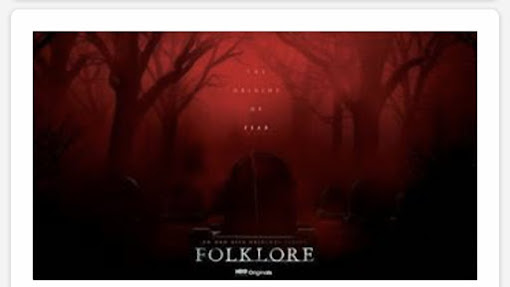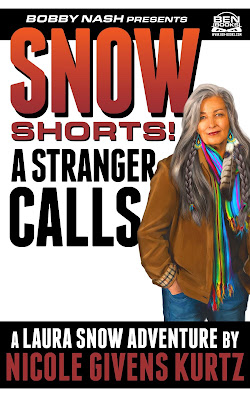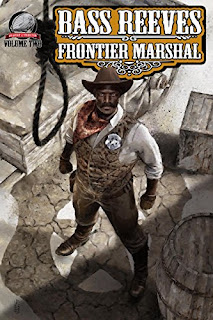One of the things that bugs me as a writer who aims for diversity in my work is that in the eyes of a lot of folks, any attempt to be diverse and inclusive somehow gets automatically declared as woke or virtue signaling.
Now to be fair, some are. But not all of it. And not most of it. In fact, among the stuff worth reading or watching, very little of it.
It's just that there's a predisposition of some people to see anything diverse and intentionally so as woke or virtue signaling so they can then immediately dismiss it as lesser work.
 But... They're Trying To Push an Agenda
But... They're Trying To Push an Agenda
To be fair, there are times when people ARE pushing a belief and "agenda-ize" their work, but geez-Louise do I feel like the lady doth protest too much. It's not every one. Hell, it's not even most of them. But they get lumped together by "anti-wokes" all the time. To quote rocker Steve Taylor, "Good, bad, there they go down the same drain."
There are lots of great socially conscious stories with great writing that have at their hearts BOTH strong storytelling and an intentionally socially conscious (or diversity-driven) story. Look no further than the drug issues of classic Spider-Man for some of the best examples of this. Or the race issues of Green Lantern and Green Arrow. Or the new Far Sector comic. Or... well, you get the picture.
The antithesis of that is the trouble that comes when certain groups push back so hard against any progressivism in comics as though "the good ol' days" own those characters and stories outright and modern ideals only serve to turn them into damaged goods. As if "good comics" and progressive ideals don't mix.
Nowhere does it say that any comics, let alone super hero books, are supposed to only include white, middle-class, straight couples with 2.5 white, straight kids. Nor shouldn't favorite characters change it up from time to time and be replaced with various races or genders. Change has been the single constant in the comics I've read since my childhood, well, at least for the characters who weren't the trademarked faces of the companies. Seems like those are more untouchable (and not in the Elliot Ness sense of the word).
 As most of my favorite heroes are C-listers and below, trust me, they are changed all the time. The designs. The people in the costumes. Their races. Their genders. Their powers and backstories. Why not broaden that to include A- and B-listers as fair game.
As most of my favorite heroes are C-listers and below, trust me, they are changed all the time. The designs. The people in the costumes. Their races. Their genders. Their powers and backstories. Why not broaden that to include A- and B-listers as fair game.
And even then, with DC's multiverse, why not have a black Superman or a trans Batman or a have Nubia take Wonder Woman's spot on the Justice League? Why not? "Because that's not my Superman or Wonder Woman, and you can't take those away from us fans, damn it! You can't push your agenda on me."
The Way They Used To Be
To be fair, DC and Marvel have tried this from time to time, and often with awful backlash from "fans" who immediately scream about how much they dislike the change. Some manage to stick (like, at least for now, Ms. Marvel and lesbian Harley and Ivy) and some run the scope of a long story arc (Jane Foster female Thor and Falcon-Cap, which was as natural a progression as Dick to Batman, in my opinion). Others are quickly shot down by fans as pandering and disappear from the racks with little to no fanfare.
It's that "friendly fire" of "I like my comics the way they used to be."
Oh, so you mean the Golden Age? I agree. We should completely reject Hal Jordan and Barry Allen and all the changes that arrived with the Silver Age.
"No, no. Those changes are okay. Those are the changes that were made for us and we like those heroes."
 Well, if those Silver Age changes were put into place to reflect a more modern sensibility than the 1940s and 1950s, shouldn't we update again to reflect the change in culture and society from the 1960s to the 2020s? Why not a new "Silver" Age change to recreate a new DC Universe in a modern light? What about the changes that need to be made for other generations, more inclusive generations?
Well, if those Silver Age changes were put into place to reflect a more modern sensibility than the 1940s and 1950s, shouldn't we update again to reflect the change in culture and society from the 1960s to the 2020s? Why not a new "Silver" Age change to recreate a new DC Universe in a modern light? What about the changes that need to be made for other generations, more inclusive generations?
"Oh, no. Those characters are established now. We can't mess with them. We updated their backstories and their technology and their timelines instead to keep them fresh. If you want to recreate something beyond that you'll have to just create new characters instead."
I'm starting to believe Janus or Harvey Dent might be behind this little double standard.
Dropping Some Comic Shop Truth
But maybe it really is about characters and not an aversion to real, modern-cultural change for comics... Sadly, my experience as a comic book shop manager tells me otherwise.
These are actual questions asked/statements said to me when I managed a comic book shop by actual, real, living people:
"Why do they have to put their gays in my comics? They're just comic books."
Because LGBTQ+ people are part of the real world and they like to see themselves in the pages of entertainment and on TV and movies just like the rest of us.
"They should stop trying to push an agenda on me, man."
As if having diverse characters, particularly in leading roles, is about pushing an agenda and not just inclusion of all those folks who exist in reality.
So, what's there to do? Sadly, it's an uphill climb, and I'll tell you why.
 It's because of little hypocritical tendencies like these:
It's because of little hypocritical tendencies like these:
"I don't mind comic characters that are POC or are LGBTQ+ as long as they don't change my favorite characters. They should just create new characters instead."
On the surface, that's a safe statement, right? Maybe, if it stood alone in a vacuum.
If you ever make that first statement and don't support books with new characters, then I won't say that makes you a hypocrite, but it does create a concern to be questioned. It's kind of like saying: "I just want my old favorite characters and if SOMEBODY ELSE wants to support inclusion in comics, well, that's okay, but not at the expense of my favorite key characters who I won't allow to be taken from the spotlight to make room for new characters of diversity, whether by changing them or by sidelining them."
But unfortunately, it doesn't stop there. The questions continue to indict the asker.
"Why did they have to make (insert a favorite character) black, gay, etc.?"
"Why are they publishing that book? That's not the (insert favorite team), not the real one. I don't know hardly any of those new characters."
"If people really wanted diversity, they would have bought (insert inclusive character whose solo book died from lack of support), wouldn't they?
That's when the true colors come bleeding out, it seems.
So, from a long-term fan standpoint, from that perspective, it seems it would be wrong to change or replace characters (either directly as in the new LSH book or N52 Wally West or by new legacy character as with Ms. Marvel).
 But apparently, it's also wrong to sideline the favorites to allow for an influx of new characters on a team book that has a better chance of surviving than creating a new character as a solo book lead.
But apparently, it's also wrong to sideline the favorites to allow for an influx of new characters on a team book that has a better chance of surviving than creating a new character as a solo book lead.
That seems a bit like wanting to play both sides to relegate diversity to the sidelines, where new books go to die, and then you also get to the last question mentioned above: "See, fans don't really want diversity. That's why those new books don't sell well."
I only bring all this up because you'd be surprised how often I heard all of those statements when I was managing a comic book store. It's the ultimate "have your cake and eat it too" against diversity in comics.
They Wouldn't Make Luke Cage White, Would They?
There's a huge difference between being portrayed as white and whiteness being critical to a character's story.
For example, Hal Jordan's whiteness is a factor in his Hard-Traveling Heroes era and he would need to be a white man if that story were told in a film. Maybe Ollie too, as the "outsider" who sees what's going on beneath the radar. But I can't recall, for example, Supergirl's or Deadshot's whiteness ever being intrinsic to her or his story. It's always seemed to me just the "coat of paint" she was created with. And that's what the difference is for me.
That's my beef with the whole "Well, they wouldn't make Luke Cage white" strawman argument. Luke's story is based on his blackness. Changing it would be more than a repaint of the character. Same goes for Black Panther, Black Lightning.
And that argument doesn't even hold up because we white folks have our ways (thank you, Langston Hughes) of doing that already. Remember black face? Remember white folks playing black folks in movies and being "painted" because they couldn't have white and black actors actually share a scene with each other?
When a character's race is important to the story or to the character's values or self, then I say don't mess with it or do so only with the greatest respect when adapting the base story. But when it's only important to fans who have read the book and only care about "that particular visual representation" then I'm okay with the changes.
Ask yourself this: "Is this character important to the history of comics or the history of a particular culture? Is this character or team important to the history of publishing comics or the history of a particular culture? Sometimes they're both. Is Captain America more important to comics history or to white history? Is Luke Cage more important to comics history or black history, or is he important to both because of his culture and race? (For the record, if you say Captain America is more important to white history, then you might be drinking the wrong Kool-Aid. He's important to American history, but America isn't just blonde and white.)
See, there's a huge difference between characters' importance to a race or culture and their importance to the history of publishing alone. If you can't see that difference honestly, you're probably just reacting with straw man arguments because you don't want to sound like a racist. (But guess what... you failed.)
The same argument goes for gender and sexual identity, in my book. "If you would make Alan Scott or Iceman gay, what about if you made Midnighter and Apollo straight?" If you can honestly ask that question you really, really don't understand the idea of representation in art and entertainment. When a group is already underrepresented in media, taking any of the examples away is a step back, not forward. If you want to ask that question and do it with any degree of seriousness, ask it when there is equal representation to serve as a starting point. Until then, we've got a long way to go.
 Who Woke My Inclusion?
Who Woke My Inclusion?
What I'm REALLY tired of is the way "woke" and "virtue signaling" are thrown around almost every time someone ventures to be inclusive in their work. I remember when including people was just "inclusion" or "diversity" and they were noble endeavors to pursue, not "wokeness" or "virtue signaling" and suddenly by changing the words they became bad things to do.
Being inclusive is part of who I am as a writer and a human being, and it's not something I do to try to look like I'm morally superior to anyone. It comes naturally to me as a human being. (Okay, I know that sounds "woke" but bear with me. lol)
It's something I worked hard at changing about myself to become a better human being from the time I learned about my non-inclusive tendencies in high school and college.
I don't do it to signal anything about anyone (unless I signal that "hey, I like to a fun story with all kinds of people in it"). I have to do that in a way that's true to the story and the characters and the setting. But if I can do that, then why should folks balk at inclusion as the next intentional piece of that story make-up?
I firmly believe that folks who react to every little instance of inclusivity or diversity in entertainment with judgments of virtue signaling or wokeness, well, I believe that says a lot more about the one who protests the work rather than the one who created it.
Perhaps instead of looking at it as if comics publishers, etc., are suddenly trying to be "woke" and "pushy" by publishing "all these" ethnic and LGBTQ+ books and characters, maybe the truth is that the environment has opened up to the point that formerly disenfranchised creators are finally able to publish the books they've been dreaming of for years -- or progressive creators finally getting to tell the stories that support their beliefs and LGBTQ+ allies rather than suppress those beliefs.
Okay, my soapbox is beginning to groan under the weight of my frustration here, so I'll step down. Be excellent to each other and party on, dudes!




















































